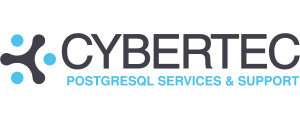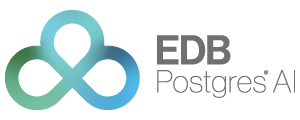Interview with Microsoft
Find out more about our sponsor Microsoft
Any views or opinions represented or expressed in this interview belong solely to the interviewee and do not necessarily represent those of the PostgreSQL Conference Europe 2024 organization, PostgreSQL Europe, or the wider PostgreSQL community, unless explicitly stated.
In which areas do you expect PostgreSQL to grow most and how does your company contribute to and benefit from that growth?
PostgreSQL is the most popular database for developers and its popularity will continue to grow. Combining a highly optimized query engine with tried and tested extension support, PostgreSQL is well-situated at the confluence of emerging technologies. The growth of AI, and the popularity of Postgres as a vector storage engine provides a compelling example of this trend. We leverage this extensibility with pgvector, contributing to performance improvements and reliability, and complement it with Azure AI services integration through our extension, azure_ai and the recently announced high-performance azure_local_ai extension which supports using locally deployed embedding models running within the Postgres server. As AI applications and the surrounding ecosystems mature, there will be an increasing need for these applications to leverage robust production features such as data encryption, enterprise identity, high availability and disaster recovery. The features we've added to our Flexible Server service are designed with these requirements in mind, and we continue to invest in open-source PostgreSQL with performance, reliability, and observability improvements amongst others.
How does PostgreSQL help you bring value to your customers?
Our customers are already realizing value from open source PostgreSQL, with its rich ecosystem, extensibility and community support. On Azure, we’re working to deliver additional value through simplification of platform management, automation of common administrative tasks, and deep integrations into the Azure ecosystem such as storage and AI. For database developers building new AI apps or enhancing existing apps, the azure_ai extension provides a SQL based interface for invoking embedding models as well as other AI capabilities. The automatic index tuning feature provides CREATE and DROP index recommendations which simplified performance tuning, and long-term back retention makes it simple to retain backups for up to 10 years to meet compliance requirements with just a few clicks. These are just a few examples of how we’re making Postgres easier and more powerful for our customers, and we have a strong roadmap to continue to invest in each of these areas.
Which of your company's contributions to the PostgreSQL Project (code/community/conference) are you most proud of?
Microsoft’s PostgreSQL committers & contributors team continues to contribute many changes to PostgreSQL in the form of enhancements, bug fixes, build & developer experience improvements in collaboration with the vibrant PostgreSQL engine development community. Recently in the PG17 development cycle, our team contributed to features such as I/O combining, streaming I/O & usage of streaming I/O during sequential scan & ANALYZE. Our team was behind query planner improvements around UNION, filtering data based on NULL values & highly partitioned workload. Our team enhanced libpq performance & query cancellations, improved pg upgrade performance, reduced memory allocations while sorting, fixed memory leaks during JIT and improved memory allocation performance. We were instrumental in improving VACUUM performance and reducing WAL volume usage. We also contributed to improving the build system and developer experience.
Find out more about Microsoft’s contributions to Postgres in this blog post.
Which PostgreSQL extension do you benefit from most, and why?
The Citus extension to Postgres benefits Microsoft the most. Citus enables customers shard data across a cluster to accelerate large workloads. Citus speeds up queries by 20x to 300x (or more) through parallelism, keeping more data in cluster memory, and aggregating I/O bandwidth across all cluster nodes. The Citus distribution can also be easily combined with native Postgres partitioning making it right for extra-large time series workloads. As an extension to Postgres, it’s easy to keep Citus in sync with the latest Postgres releases & stay current with all the latest innovations in its community. Of course Citus is 100% open source, so anyone who doesn’t need a fully managed cloud service can gain the benefits of Citus too.
What makes you want to attend the PostgreSQL Conference Europe conference?
Community conferences are genuinely nice places to meet our customers and spread knowledge about Microsoft contribution to open source in general and PostgreSQL ecosystem specifically. PGConf EU is one of such great community events. We always look forward to listening to interesting talks, engaging in hallway track discussions, meeting good old #postgresfriends, and of course, making some new ones!























